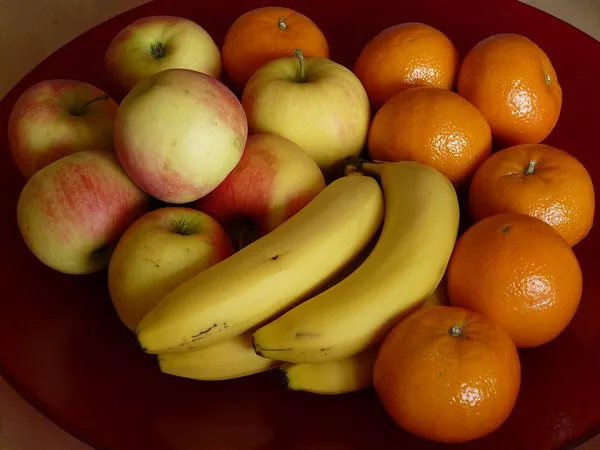Bananas are one of the most popular and widely consumed fruits worldwide, cherished for their convenience, sweetness, and versatility. Beyond their delicious flavor and creamy texture, bananas are also celebrated for their nutritional profile, boasting an array of essential vitamins, minerals, and dietary fiber. Among the many nutrients found in bananas, potassium reigns supreme, playing a vital role in maintaining overall health and well-being. In this comprehensive guide, we’ll explore the potassium content of bananas, unraveling the mysteries behind this essential mineral and its numerous health benefits.
Understanding Potassium: A Vital Nutrient
Potassium is an essential mineral and electrolyte that plays a crucial role in various physiological processes within the body. It is involved in maintaining fluid balance, regulating blood pressure, supporting proper muscle function, and facilitating nerve transmission. Potassium also plays a role in cardiovascular health, bone health, and kidney function, making it a cornerstone of overall health and well-being.
While potassium is found in a wide range of foods, including fruits, vegetables, legumes, and dairy products, certain foods stand out as particularly rich sources of this vital nutrient. Among them, bananas are renowned for their high potassium content, making them a popular choice for individuals looking to boost their potassium intake naturally.
The Potassium Content of Bananas
So, just how much potassium is in one banana? The potassium content of bananas can vary slightly depending on factors such as ripeness, size, and variety. However, on average, a medium-sized banana (approximately 7-8 inches in length) contains approximately 422 milligrams of potassium. This accounts for about 12% of the recommended daily intake of potassium for adults, which is typically around 3,500-4,700 milligrams per day.
It’s important to note that the potassium content of bananas may vary slightly depending on factors such as ripeness, with riper bananas generally containing slightly higher levels of potassium than less ripe ones. Additionally, the size of the banana can also impact its potassium content, with larger bananas containing more potassium than smaller ones.
Health Benefits of Potassium
Potassium plays a vital role in maintaining overall health and well-being, with numerous health benefits attributed to adequate potassium intake. Some of the key health benefits of potassium include:
Regulating Blood Pressure: Potassium helps counteract the effects of sodium, helping to regulate blood pressure and reduce the risk of hypertension and cardiovascular disease.
Supporting Muscle Function: Potassium is essential for proper muscle function, including muscle contraction and relaxation. Adequate potassium intake can help prevent muscle cramps, spasms, and fatigue.
Promoting Heart Health: Potassium plays a crucial role in maintaining heart health by regulating heart rhythm and supporting proper cardiovascular function. Higher potassium intake has been associated with a reduced risk of heart disease and stroke.
Enhancing Bone Health: Potassium helps maintain the acid-base balance in the body, which is essential for bone health. Adequate potassium intake may help reduce the risk of osteoporosis and improve bone density.
Supporting Kidney Function: Potassium plays a role in kidney function by helping to regulate fluid balance and electrolyte levels. Adequate potassium intake may help prevent kidney stones and support overall kidney health.
Incorporating Bananas Into Your Diet
Adding bananas to your diet is an easy and delicious way to boost your potassium intake and reap the numerous health benefits associated with this essential mineral. Here are some simple and creative ways to incorporate bananas into your daily meals and snacks:
Enjoy Them Plain: Bananas are delicious and satisfying on their own, making them the perfect portable snack for on-the-go nourishment. Simply peel and eat a banana for a quick and convenient source of potassium and energy.
Add Them to Smoothies: Blend ripe bananas into smoothies for a creamy and naturally sweet base. Combine bananas with other fruits, leafy greens, yogurt, and your favorite plant-based milk for a nutrient-rich and refreshing beverage.
Top Your Breakfast: Slice bananas and add them to your morning cereal, oatmeal, or yogurt for a boost of potassium and natural sweetness. You can also mash bananas and spread them on toast or pancakes for a delicious and nutritious topping.
Bake Them Into Treats: Use ripe bananas as a natural sweetener and moisture agent in baked goods such as muffins, bread, and cakes. Bananas add flavor, moisture, and potassium to baked treats while reducing the need for added sugar and fat.
Freeze Them for Frozen Treats: Freeze ripe bananas and blend them into creamy “nice cream” for a healthy and indulgent dessert. Simply blend frozen bananas with a splash of milk or yogurt until smooth, then enjoy as is or customize with your favorite toppings.
See Also: Everything You Need To Know About Potassium
Conclusion
Bananas are not only delicious and convenient but also packed with essential nutrients, including potassium. With approximately 422 milligrams of potassium in one medium-sized banana, this humble fruit offers a convenient and natural way to boost your potassium intake and support overall health and well-being.
From regulating blood pressure and supporting heart health to promoting muscle function and enhancing bone health, potassium plays a crucial role in various physiological processes within the body. By incorporating bananas into your diet regularly, you can harness the numerous health benefits of potassium and enjoy the simple pleasure of this beloved fruit.
So, whether you enjoy them plain, blended into smoothies, added to baked goods, or frozen into creamy treats, be sure to make bananas a staple in your diet and reap the potassium-rich rewards they have to offer.

